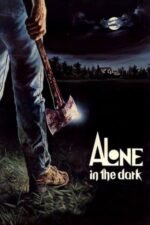Beyond Bars: Exploring Mental Institutions on Film – More Than Just Asylum Tropes
Hey everyone! Let’s talk about a fascinating, often misunderstood cinematic space: the mental institution. It's a setting that conjures up all sorts of images - from chilling horror tropes to poignant explorations of human fragility. And honestly, film has wrestled with how to portray these spaces and the people within them for decades, sometimes brilliantly, sometimes… not so much.
For a long time, asylums in movies were largely played for scares – think straightjackets, padded cells, and wild-eyed patients. While those visuals certainly stick with you (and can be effective!), they often flatten the complexities of mental illness and institutionalization. Thankfully, we've moved beyond that, though echoes remain.
Take Kyon Ki… as an example. It’s a beautiful film, and what struck me most wasn't just the romance at its core, but how it depicts the hospital setting with genuine empathy. You see the dedication of Dr. Tanvi, the vulnerability of Anand, and the quiet dignity within that environment – it avoids sensationalism and focuses on human connection amidst hardship. It’s a far cry from the purely exploitative depictions we sometimes see.
Then you have something like Krazzy 4, which takes a completely different approach. Here, the institution becomes almost a training ground for resilience and unexpected camaraderie. These patients aren't defined by their diagnoses; they're individuals with unique strengths who find power in unity. It’s a playful take, sure, but it subtly challenges societal perceptions of mental illness – reminding us that labels don’t define people.
What I love is how these films, and others like Silent Madness (with its clever infiltration plot) or even the more intense psychological drama of Shock, use the setting to explore broader themes. Second Name, for instance, uses the backdrop of a cult and a troubled family history to create an atmosphere of paranoia and uncertainty – the mental institution becomes symbolic of fractured realities and hidden truths. It’s not just about what's happening inside those walls, but how they reflect the turmoil within individuals and families.
Even films that aren't explicitly set in institutions can tap into this theme. Downfalls High, while focused on friendship, touches upon themes of isolation and finding your place – feelings often associated with mental health struggles.
The portrayal of mental institutions in film is constantly evolving, reflecting our changing understanding of mental illness and societal attitudes. It’s a space ripe for exploring complex issues like trauma, identity, and the search for connection. So next time you're looking for something thought-provoking to watch, consider diving into these films – they offer far more than just surface-level thrills; they invite us to confront uncomfortable truths and celebrate the resilience of the human spirit.
What are your thoughts? Any other films that come to mind when you think about mental institutions on screen? Let’s chat!







































